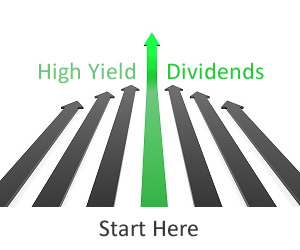Altria Treats Its Dividend Investors Right – MO
 The Altria Group (MO) is one of the largest tobacco companies in the world. The company has been around for 25 years and operated under its former name Phillip Morris USA. The company was founded by Phillip Morris, Kraft, and Nabisco back in 1985. Altria currently owns John Middleton Company, UST Inc, and a 28% interest in SABMiller PLC. The company has recently branched out into the smokeless tobacco market and wine industry.
The Altria Group (MO) is one of the largest tobacco companies in the world. The company has been around for 25 years and operated under its former name Phillip Morris USA. The company was founded by Phillip Morris, Kraft, and Nabisco back in 1985. Altria currently owns John Middleton Company, UST Inc, and a 28% interest in SABMiller PLC. The company has recently branched out into the smokeless tobacco market and wine industry.
Altria manufactures and markets several different brands of cigarettes. The company spends marketing and lobbying to create a favorable environment for its products. Altria has long been a favorite of CNBC Mad Money host Jim Cramer. He considers the stock best of breed and has owned the stock for its impressive dividend.
The tobacco industry is an extremely competitive marketplace. The biggest competitors to Altria are Lorillard and Reynolds American. Altria is the industry king as the company is much lower than its two biggest competitors combined. Tobacco companies are always the subject of civil lawsuits and in the crosshairs of federal regulators. Tobacco companies also face rising taxes from city and state governments to meet revenue shortfalls. These tax increases do affect sales volume.
The last few years have been rough for the Altria Group. The company has seen its revenue decline 26% over the past five years. Sales are on pace to grow 8% this year and 6% the next. Altria’s revenue will be just over $17 billion dollars for this year. Altria has a terrible balance sheet with under $1 billion dollars in cash and over $12 billion dollars in debt. Fortunately, the company has $3.6 billion dollars in cash flow to service its debts and return cash to shareholders.
Shares of Altria are not cheap on a fundamental basis. The company’s stock trades at 13 times earnings which is right in line with the industry average. The company’s 6.7% growth rate is nearly half the industry average of 11%. This means that Altria’s shares trade at nearly 2 times the company’s earning growth. Shares trade at 11 times book value. That’s a high valuation even for a company of Altria’s size.
The primary reason to invest in Altria is its big fat dividend. Altria’s stock is currently yielding over 6%. This is actually lower than the 5 year dividend yield of 12%. My concern would be Altria’s dividend rate. The dividend payout rate is alarmingly high at 83% of earnings. The company’s management team is committed to maintaining the dividend despite its high payout. Altria has increased its dividend 43 consecutive times.
Dividend investors looking for a stock with a great dividend yield can do much worse than Altria.


